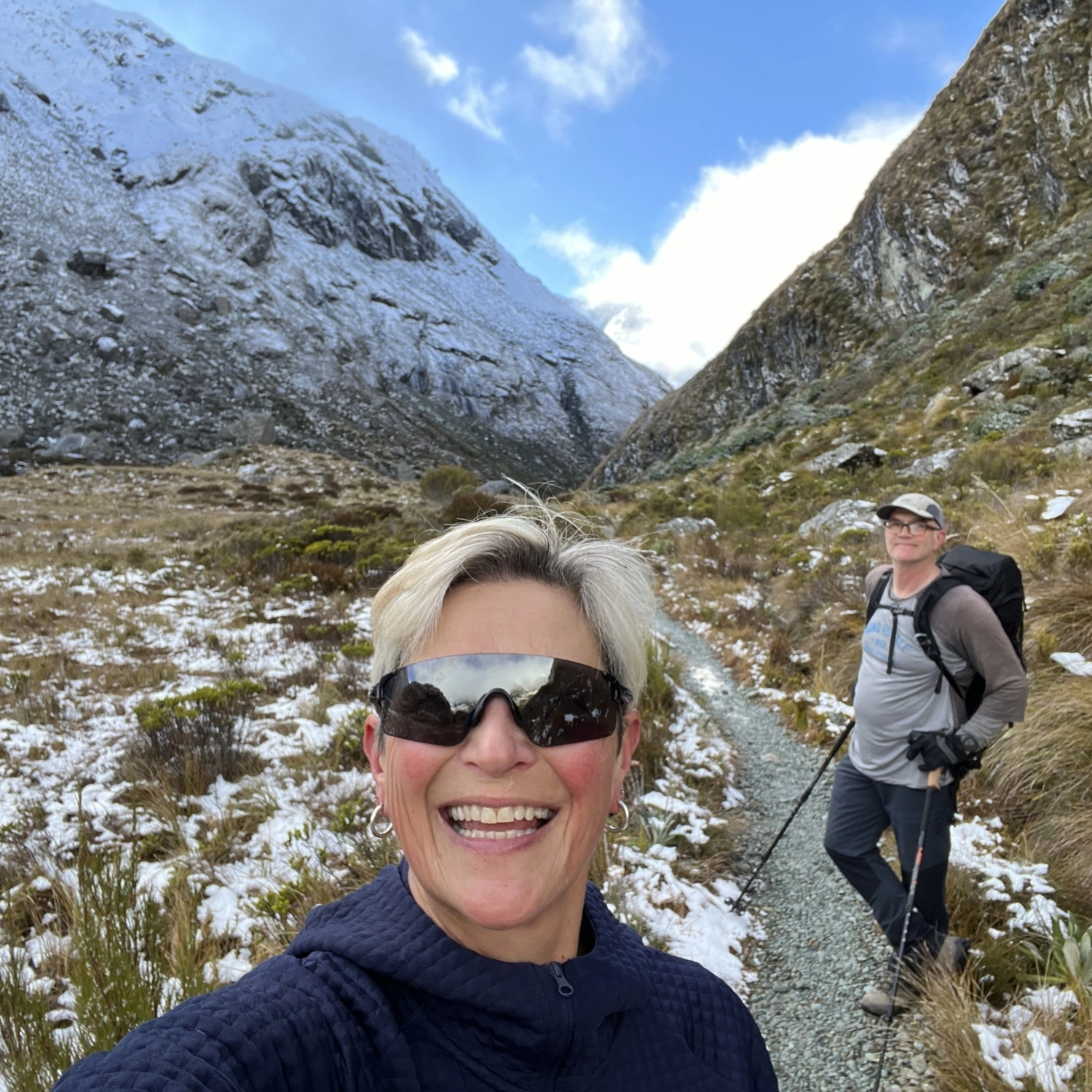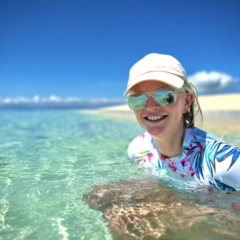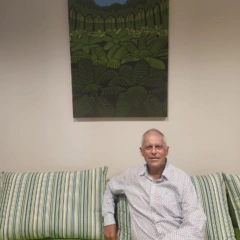Rolling with the punches
Juliet has spent her life searching for adventure. After a trip to New Zealand in 1997, she and her husband decided to leave their home in the UK and move here permanently for a change of pace. “We lived on the South Coast in Wellington, which was just stunning. We had two kids, who are now 24 and 26.”
When their youngest left home a few years ago, the empty nesters decided it was time for their next big adventure. They sold their house in Wellington and moved down to the beautiful shores of Lake Hāwea. “We’d actually only been down here once,” Juliet laughs. “The kids thought we were slightly nuts!”
Not long after settling into their new home, Juliet had a serious mountain biking accident. “A dog ran into the back wheel of my bike. I ended up with five fractures and a nasty concussion.”
The concussion didn’t improve despite trying several different treatments. “My health actually seemed to be deteriorating, and I was getting more and more worried about it.”
Juliet soon learned there was something else at play. Blood tests revealed her platelet levels were slowly rising, and she was eventually diagnosed with essential thrombocythaemia (ET), a type of blood cancer that falls into a group called myeloproliferative neoplasms (MPNs).
Suddenly, Juliet had an explanation for all the strange symptoms that had been plaguing her for years. The intense fatigue, migraines, vision problems, nausea and tingling feet – “They’re all ET symptoms!”
While Juliet loves her rural lifestyle, she does miss the ease of accessing healthcare in the city. She’s had to pay for things like blood tests and scans out of pocket because it’s too far to drive to a main centre where she could get them for free. And attending appointments requires a lot of forward planning, particularly if she wants her husband to join her.
“For hospital appointments, I have to travel to Dunedin. It’s a four-hour drive each way, and it’s a pretty intense drive, so it’s too much to do in a day. It’s a one-night trip at a minimum.”
Although living rurally has posed challenges in Juliet’s treatment, it hasn’t stopped her from getting support through LBC. After coming across LBC online, Juliet reached out and was put in touch with Deborah, her local Support Services Coordinator.
“Deborah has been fantastic,” says Juliet. “She gave me some really good independent advice, and she was just easier to communicate with about some of the sensitive subjects.”
Juliet has also enjoyed going along to her local LBC support group in Cromwell, and she was relieved to finally connect with several other ET patients in New Zealand through an online support group run by LBC. “I’m really grateful to finally find some other people out there with ET – you know, we’re rare, but we are out there!”
She says it’s been great speaking with them about the challenges of ET – particularly the severe fatigue, which is a common effect of the condition and its treatment. “The fatigue is real. I often feel really tired and very flat – I do have some days I can’t get off the couch,” Juliet says.
She’s currently also dealing with low white blood cell counts, which means her immunity is compromised. After speaking to her haematologist, she’s taking time away from her job at the local school to lower her risk of infection.
As Juliet navigates these uncertain times, she knows that LBC has her back. "I’m just so grateful to have LBC, and access to Deborah and her knowledge."
For the time being, Juliet is taking care of herself and listening to her body. Depending on her energy levels each morning, she does what she can with the day – walks her dog, swims in the lake, potters in her garden, or gets out in the beautiful Otago landscape – and tries not to beat herself up if it’s a couch day. “I just have to roll with the punches!”



